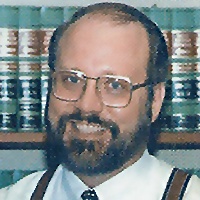Daisy RICO Act Lawyer, Georgia
Sponsored Law Firm
-
 x
x

Click For More Info:
-
The Law Offices of Richard L. Cooper, P.A.
848 Brickell Avenue Suite 800 Miami, FL 33131» view mapDWI/DUI, Drug Trafficking, Felony Nationally Ranked Top 40 Under 40
With Richard L. Cooper you can expect a trusted confidant who will work diligently to fully understand your case and determine a road map to help you regain control of your life.
800-756-2781
Not enough matches for Daisy RICO Act lawyer.
Below are all Daisy Criminal lawyers.
R. Brandon Galloway
✓ VERIFIEDR. Brandon Galloway is a practicing lawyer in the state of Georgia where he currently works at Galloway & Galloway, P.C. He received his bachelors deg... (more)
Chester James Gregg
✓ VERIFIEDBorn in Ilion, New York, Attorney Chester J. "Chet" Gregg graduated from the State University of New York, College at Oswego in 1993 with a B.S. in Se... (more)
Kimberly Laverne Copeland
✓ VERIFIEDKimberly L. Copeland, founder of Kimberly L. Copeland & Associates in Jesup, Georgia, has become one of the most respected criminal lawyers in Georgi... (more)
Daryl J. Walker
✓ VERIFIEDDaryl Walker proudly serves Savannah, Georgia and the neighboring communities in the areas of criminal, DUI-DWI, accident & injury, and estate law.

 Richard L. Cooper Miami, FL
Richard L. Cooper Miami, FL AboutMiami Attorney at Law
AboutMiami Attorney at Law ServicesCriminal Defense
ServicesCriminal Defense




